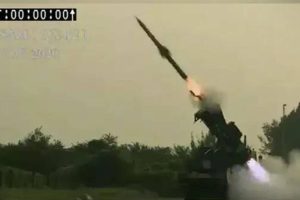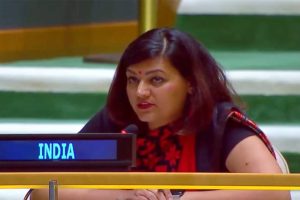In a notable shift in tone, former Pakistan Foreign Minister Bilawal Bhutto Zardari has extended an olive branch to India, seeking dialogue and intelligence-sharing to jointly combat terrorism in the region.
Speaking at a UN Headquarters briefing in New York, Bhutto called for renewed diplomatic engagement, just as an Indian all-party delegation led by Congress MP Shashi Tharoor reached Washington, DC as part of Operation Sindoor’s global outreach campaign.
The timing of Bhutto’s remarks appeared significant, coming as India’s successful counter-terror airstrikes reportedly dealt heavy blows to Pakistan’s military assets following the April 22 Pahalgam terror attack.
According to ongoing analysis, Indian strikes during Operation Sindoor are believed to have destroyed:
- 6 Pakistan Air Force fighter jets
- 2 high-value aircraft
- Over 10 UCAVs
- 1 C-130 transport aircraft
- Multiple cruise missiles and infrastructure
Bhutto acknowledged the deteriorating security situation and pressed for cooperation, warning against leaving the fate of 1.7 billion people to non-state actors.
“Pakistan would still like to cooperate with India to combat terrorism. We cannot let terrorists or non-state actors dictate whether two nuclear-armed nations go to war,” Bhutto said.
While echoing long-standing Pakistani concerns about unresolved disputes, Bhutto notably admitted the need for a structured resolution mechanism and surprisingly proposed collaboration between the ISI and India’s RAW.
“I am completely confident that if ISI and RAW were ready to sit down and work together to fight these forces, we would see a significant decrease in terrorism in both India and Pakistan,” he added.
Bhutto’s statements indirectly validate India’s claims that the Pahalgam attack was orchestrated by terror elements operating from within Pakistan. India has asserted that any future attacks would prompt decisive military responses, a posture strongly backed during the ongoing Operation Sindoor diplomatic outreach.
The contrast between India’s proactive diplomatic push and Pakistan’s reactive posturing underscores the pressure Islamabad faces internationally, especially after sustaining significant military losses.
Bhutto’s conciliatory tone marks a rare pivot in Pakistan’s stance, potentially driven by domestic vulnerability, global scrutiny, and India’s growing diplomatic leverage.





